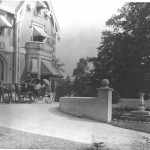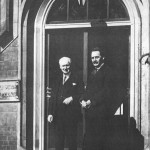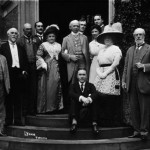Celebrating 100 Years Of Advancing Urban Health
The Wellesley Central Hospital
In 1998, the Wellesley Central Hospital in southeast Toronto closed its doors, ending an “87-year tradition of excellence and caring.” While the operations of the hospital had come to an end, as directed by the Ontario Health Services Restructuring Commission, the spirit that defined it continued. A group of former board members and community activists remained determined to protect the legacy of the hospital. The Wellesley Central Health Corporation (WCHC) was formed.*
Wellesley Central Health Corporation
Over the next few years, WCHC developed plans to switch its focus from delivering health services. With substantial community consultation, a plan unfolded to provide a number of neighbourhood uses to the land where Wellesley Central Hospital once stood.
Today, the land houses a long-term care facility, a not-for-profit supportive housing complex, for-profit housing and a public park. Over the years that WCHC focused on site redevelopment, it also began to lay the foundation of its future as a leader in the urban health field. In 2003, Rick Blickstead, WCHC’s Chief Executive Officer, described the organization’s goal “to be a leader and catalyst for enhancing the wellness and health of people in southeast Toronto and other communities.” WCHC developed a community-based research (CBR) strategy, began funding CBR projects and mounted a series of capacity-building workshops for community organizations in the Toronto area. The organization evolved further, becoming actively involved in policy analysis, research and knowledge exchange.
Wellesley Institute
In 2006, Wellesley Central Health Corporation changed its name to Wellesley Institute, reflecting its evolution from developer to think tank. Today, Wellesley Institute is a non-profit and non-partisan research and policy institute that focuses on finding solutions to problems of urban health disparities.
Presentation: The Wellesley Hospital Legacy
*(For a complete history of the Wellesley Hospital, see Survival Strategies: the Life, Death and Renaissance of a Canadian Teaching Hospital, edited by David Goyette, Dennis William Magill, and Jeff Davis, Toronto: Canadian Scholars’ Press Inc., 2006. 501p.)











